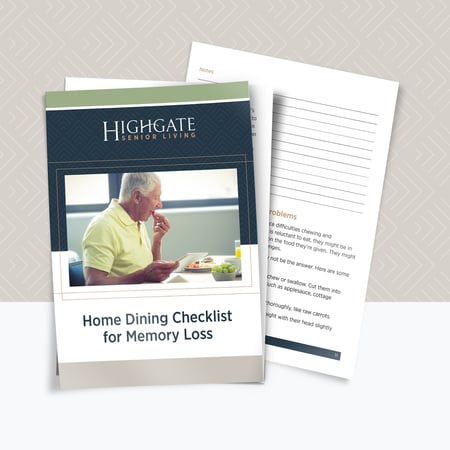Most families look forward to spending quality time together gathered around a table, but changes related to a loved one’s memory loss may make this a less enjoyable experience than it once was.
Teepa Snow, a leading Alzheimer’s and dementia expert in the senior living industry, says that it’s up to caregivers to identify what aspects of the mealtime environment triggered a negative reaction and discover what can be done differently to address challenging situations.
Highgate Senior Living uses Teepa Snow’s Positive Approach to Care to help seniors with memory loss get the proper nutrition they need — and you can, too! With a few simple, creative interventions to your approach when helping a parent or loved one eat a meal, you can turn mealtime from a chore into a chance to not only support your loved one to eat and drink well but also to connect and improve your relationship.
Use this checklist to learn more about why changes such as loss of appetite or change in eating preferences occur, take a look at the tips we offer, and make notes or a plan to address your loved one’s greatest challenges.
In our latest Highgate Senior Living checklist, we address common dining and nutrition challenges such as:
Download this checklist to learn ways to overcome some of the most common dining challenges related to mealtimes and caring for a loved one with memory loss. Make mealtime a positive and enjoyable experience again.

